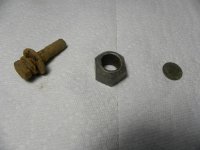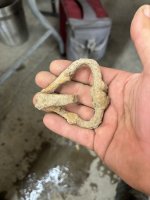H.R.289 - Allows surface management agencies the right to charge individuals to recreate on the public lands.
We got the fees for using forest lands removed years ago but people continue to pay for the illegal Adventure Pass. Now those same agencies will have a legal right to charge anyone for even being on public land if they get their way with this bill.
In California people continued to line up to pay for parking or picnicking even after several laws and court orders declaring the fees illegal. In the rest of the west we have ignored the "pay here" signs. Now if this bill passes it could become legal for any land manager to charge anyone any fee they want for any use of public land. I see toll booths and goon squad enforcers in the future if this bill passes.
Heavy Pans
We got the fees for using forest lands removed years ago but people continue to pay for the illegal Adventure Pass. Now those same agencies will have a legal right to charge anyone for even being on public land if they get their way with this bill.
In California people continued to line up to pay for parking or picnicking even after several laws and court orders declaring the fees illegal. In the rest of the west we have ignored the "pay here" signs. Now if this bill passes it could become legal for any land manager to charge anyone any fee they want for any use of public land. I see toll booths and goon squad enforcers in the future if this bill passes.
Heavy Pans
Upvote
0








